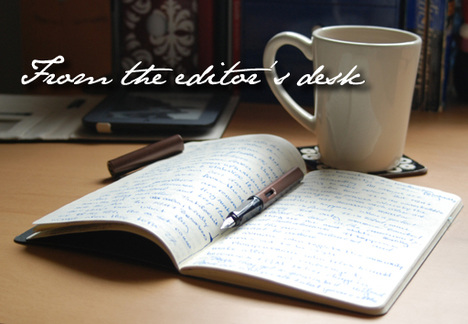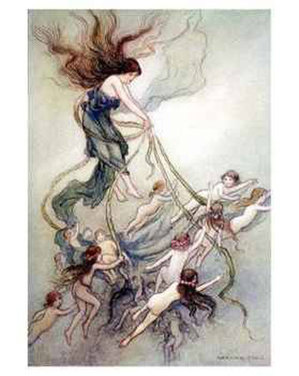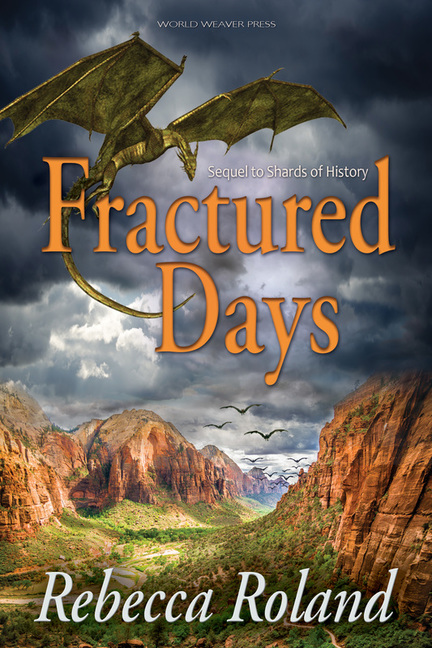On the importance of storytelling The other weekend, with an afternoon to myself, I made dumplings—a feat which isn’t remarkable by itself, except for the fact that when done alone, filling, folding, steaming, and freezing a hundred or more tiny dough pods of savory goodness, is a long, mind-numblingly tedious process. I understand, more than I can express, why bulk food production or preservation is so often a cultural tradition involving many people. In Korea, people--mainly women but sometimes whole families or entire monasteries--gather to produce near-obscene amounts of kimchi when the cabbage harvest is at its peak. In Midwest America, for decades, sisters and neighbors would show up in each other’s kitchens whenever a fruit harvest came in, strawberries for jam, apples for sauce, tomatoes, blueberries, green beans, zucchini--I have no idea how they prepare and store the zucchini for winter, but there has to be some way. My solution, in the face of a hundred-plus dumplings and solitude, was to stream several hours of TED Radio Hour from NPR.org, and I was very happy to stumble onto a show from April 2015 titled “Framing the Story.” More aptly explained in the show synopsis as “TED speakers explore the art of storytelling.” Storytelling. Yes. Oh, yes. Ruminations on storytelling is a favorite topic of mine. Not surprising then that World Weaver Press’s tagline description—once you look past publishing fantasy, paranormal, and science fiction, which places us in the industry, the next part—the part the describes not just the nuts and bolts of what we do, but why we do it and what we believe in that makes us get up and do it every day, is: We believe in great storytelling. I am a storyteller. I know this because I believe we are all storytellers. It is an innate component of the human condition. As much as we are drawn to the company of other humans—real flesh and blood humans, the digital renderings and diatribes of humans, the fictional humans we find in books—we are drawn to hear their stories and tell them ours in turn. For what do we live, but to make sport for our neighbours, and laugh at them in our turn?My aunts and uncles would gather around my grandmother’s kitchen table and tell stories. Things that had happened to them, things that had happened to people we knew, people we didn’t know, some that had become family legend. One story after another. I’d be tempted to dismiss this as “catching up” with each other if some of the stories weren’t already twenty, fifty, seventy years-old as we approached the table. For hours and hours as a teenager, I was trapped at that table, the out-of-town relation there for a visit. It didn’t matter where or with whom we were staying the night, there was no place for me to retreat to. No smart phone to let me bury myself in the internet like any good apathetic teenager, no text messaging, no friends in town or transportation other than that controlled by the parental units. The storytelling had to be endured. And eventually, it got in my blood. Some of us were better storytellers than others, but all of us spun out our tales for the consumption of others sooner or later. My Aunt Sherry, who could make friends with anyone, would spin out these long yarns, complete with waiving arms and animated facial expressions and the occasional voice impression. Somehow, the most uninteresting premises had a pretty good run of it under her telling. Although the impressions were usually more laughable than anything else. Me, I learned brevity. I have a tendency to ramble, laying the events out of order the longer the story gets. Brevity gave me chronology and, if I hadn’t otherwise ruined it, wit. But mostly, I sat and absorbed rather than spoke. Back to the TED Radio Hour and people who are being notably more insightful than I am. We're born for storiesThey open (and close) with Andrew Stanton, who’s been writer/co-writer for Toy Story, Finding Nemo, Wall-E, basically everything Pixar’s ever done that is awesome—and he tells us, “We’re born for stories.” Then, “We all want affirmations that our lives have meaning. And nothing is a greater affirmation than when we connect through stories.” They bring on writer Chimamanda Adichie, and Guy Roz asks her, “Why are we so drawn to stories?” She replies “Oh! Stories are how we make meaning of our lives. . . . Even recounting a story of something that happened to me, it make meaning of it.” Then for the clincher, Adichie finishes: “Stories are necessary, as necessary as food and water.”
1 Comment
Fractured Days cover art has arrived. A fantasy novel and sequel to the Shards of History, beloved by readers and critics alike, by Rebecca Roland.
Malia returns home the hero of a war she can’t remember. The valley burning under the Maddion's invasion, the fate of her late husband, the way she resolved the long-time distrust between the Taakwa people and the wolfish, winged Jegudun creatures—all of it has been erased from her memory. Malia hopes to resume training as her village’s next clan mother, but when the symbiotic magic that she and the Jeguduns used to repair the valley’s protective barrier starts to consume more and more of her mind, she's faced with the threat of losing herself completely.
A powerful being known as “the changer” might hold the solution to her vanishing memories. But the Maddion’s new leader, Muvumo, also seeks the changer, hoping the being will cure them of the mysterious illness killing off his people. Meanwhile, Muvumo’s bride hopes the changer can bring about a new era, one in which she and the other Maddion women no longer need to hold onto their greatest secret. Publication date: June 9, 2015 While you're waiting for Fractured Days to come out on June 9, get your hands on a copy of Shards of History, the first novel in this fantasy series with a southwest flavor. Goodreads Book GiveawayEnter to WinRhonda Parrish, editor of the highly anticipated Fae anthology, interviews contributor Rhonda Eikamp.  What was the inspiration for your Fae story? Editor Rhonda Parrish put out a great call for submissions, looking for the most unusual settings for fairy stories authors could come up with. I knew I wanted to go with something underwater and the Civil War submarine idea just came out of nowhere. Can you tell us a bit about the specific type of fairy creature in your story? There was no particular folklore type I had in mind, unless it was maybe the winged sprite that is inimical to humans. I wanted to create something earthy, cthonic, more animal than human, which could inhabit the world with us but escape notice most of the time. Its concerns would be so different from ours that there would be almost no communication and the human and fairy characters would each have little understanding of what the other wanted. |
World Weaver PressPublishing fantasy, paranormal, and science fiction. Archives
February 2024
|
- Home
-
Books
-
All Books
>
- Beyond the Glass Slipper
- Bite Somebody
- Bite Somebody Else
- Black Pearl Dreaming
- Cassandra Complex
- Causality Loop
- Clockwork, Curses, and Coal
- Continuum
- Corvidae
- Cursed: Wickedly Fun Stories
- Dream Eater
- Equus
- Fae
- Falling of the Moon
- Far Orbit
- Far Orbit Apogee
- Fractured Days
- Frozen Fairy Tales
- Glass and Gardens: Solarpunk Summers
- Glass and Gardens: Solarpunk Winters
- Grandmother Paradox
- Grimm, Grit, and Gasoline
- Haunted Housewives
- Heir to the Lamp
- He Sees You When He's Creepin': Tales of Krampus
- Into the Moonless Night
- Jack Jetstark's Intergalactic Freakshow
- King of Ash and Bones (ebook)
- Krampusnacht
- Last Dream of Her Mortal Soul
- Meddlers of Moonshine
- Mothers of Enchantment
- Mrs Claus
- Multispecies Cities
- Murder in the Generative Kitchen
- Recognize Fascism
- Scarecrow
- Sirens
- Shards of History
- Shattered Fates
- Skull and Pestle
- Solarpunk (Translation)
- Solarpunk Creatures
- Solomon's Bell
- SonofaWitch!
- Speculative Story Bites
- Trenchcoats, Towers, and Trolls
- Weredog Whisperer
- Wolves and Witches
- Anthologies and Collections
- Novels
- Novellas
- Fairy Tale
- Fantasy
- Romance
- Science Fiction
- Urban/Contemporary Fantasy
- Young Adult SFF
-
All Books
>
- Blog
- About
- Contact
- Press / Publicity
- Newsletter Signup
- Privacy Policy
- Store




 RSS Feed
RSS Feed